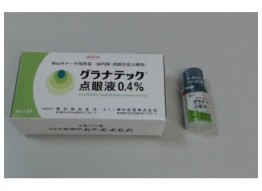What are Sprycel 20 mg tablets for leukemia (dasatinib)?
Sprycel tablets are pharmaceutical formulations that incorporate dasatinib, a small-molecule compound recognized for its distinctive mechanism of action. Dasatinib operates by selectively inhibiting protein-tyrosine-kinases, a class of enzymes that play a pivotal role in the cellular signaling pathways responsible for promoting growth. This inhibition interrupts the signal transduction cascades which are vital for the uncontrolled proliferation of cells, particularly in the context of malignancies.
At the core of Sprycel's therapeutic efficacy is its ability to thwart the aberrant synthesis of proteins within tumor cells. By targeting and curtailing the activities of protein-tyrosine-kinases, the medicine effectively hinders the generation of these abnormal proteins that contribute to the unrestrained growth and survival of cancerous cells. This regulatory action imposed by dasatinib consequently exerts a potent anticancer effect, impeding the relentless progression of the disease.
The primary applications of Sprycel tablets encompass the treatment of chronic myeloid leukemia (CML) and Philadelphia chromosome positive acute lymphoblastic leukemia (Ph+ ALL). This utilization is grounded in the recognition of the intricate interplay between dasatinib and the molecular underpinnings of these leukemias. Notably, dasatinib's mechanism of action distinguishes it from other therapeutic agents in the same class. Its unique mode of action enables it to target not only BCR/ABL kinases, but also other tyrosine kinases that might contribute to the leukemogenic process.
One compelling facet of dasatinib's profile is its differential binding behavior compared to imatinib, another commonly employed tyrosine kinase inhibitor. Dasatinib exhibits a reduced propensity to bind to the BCR/ABL kinase, a phenomenon that underpins its utility in scenarios where resistance to imatinib has arisen due to BCR/ABL domain point mutations. In these cases, dasatinib's distinct binding characteristics enable it to circumvent the resistance mechanisms that thwart the efficacy of other therapies.
Beyond its role in treating chronic myeloid leukemia, dasatinib also finds application in addressing Philadelphia chromosome positive acute lymphoblastic leukemia. This extension of its therapeutic spectrum underscores its versatility and relevance in a broader array of leukemia subtypes.
Active principles: dasatinib hydrate
Amount: 30 tablets
Maker: Bristol-Myers Squibb K.K., Tokyo, Japan
Indications: chronic myeloid leukemia, recurrent / refractory Philadelphia chromosome-positive acute lymphoblastic leukemia.
How to take
Chronic myeloid leukemia – chronic phase: adults should take 100 mg as dasatinib hydrate at a time once a day. Your doctor may adjust the dosage according to the symptoms. The maximum dosage is 140 mg at a time once a day.
Chronic myeloid leukemia – accelerated phase / blast phase: adults should take 70 mg as dasatinib hydrate at a time 2 times a day. Your doctor may adjust the dosage according to the symptoms. The maximum dosage is 90 mg at a time 2 times a day.
Recurrent/refractory Philadelphia chromosome-positive acute lymphoblastic leukemia: adults should take 70 mg as dasatinib hydrate at a time 2 times a day. Your doctor may adjust the dosage according to the symptoms. The maximum dosage is 90 mg at a time 2 times a day.
Each tablet contains 20 mg of dasatinib hydrate.
Contraindications: do not use for the following patients:
- patients who have had interstitial pneumonia,
- patients with impaired hepatic function, abnormal electrocardiogram, heart disease,
- patients who use a thorombotic inhibitor,
- pregnant, possibly pregnant or breastfeeding women.
Important information
In order to check the effects or adverse reactions of this medicine, the treatment should be performed under the constant monitoring of the consulting doctor.
Avoid taking grapefruit juice or any food or supplement containing St. John's Wort while taking this medicine.
If an allergic reaction occurs, patient needs to stop using the medicine and consult with their doctor. If patient is taking any other medication or treatment, they should consult with their doctor in advance.



